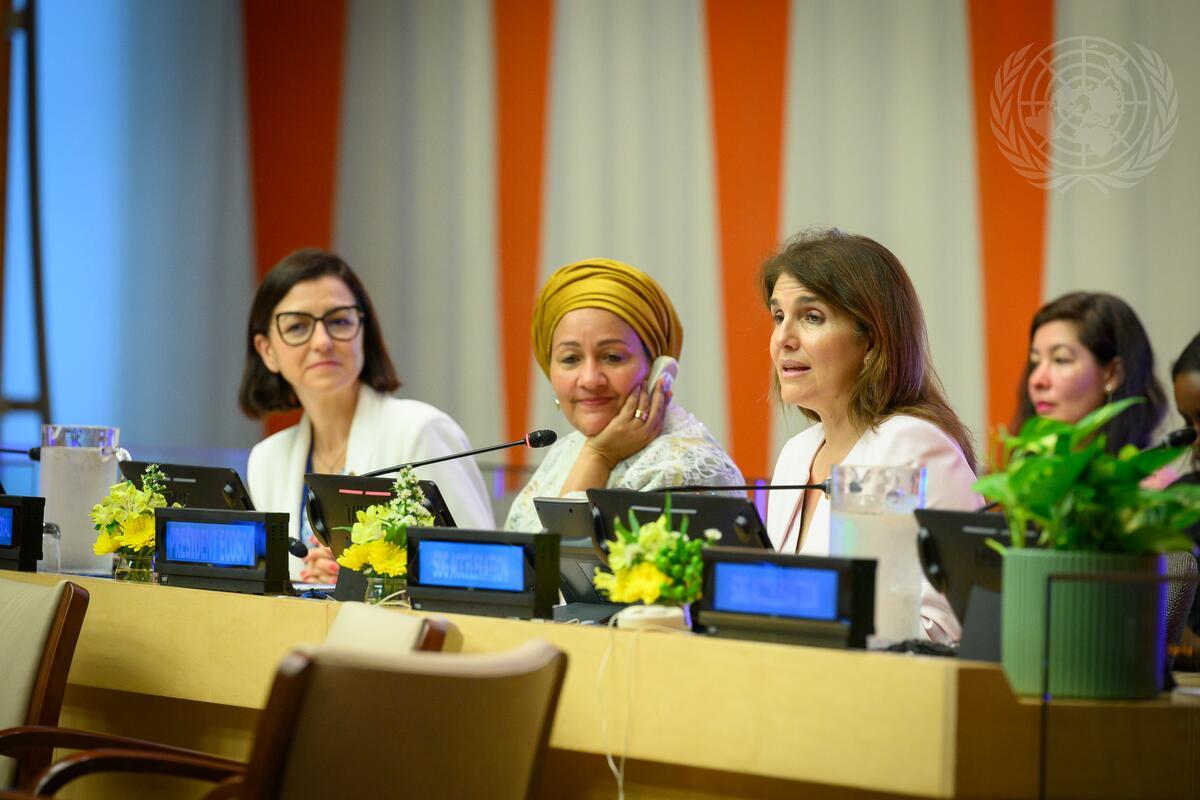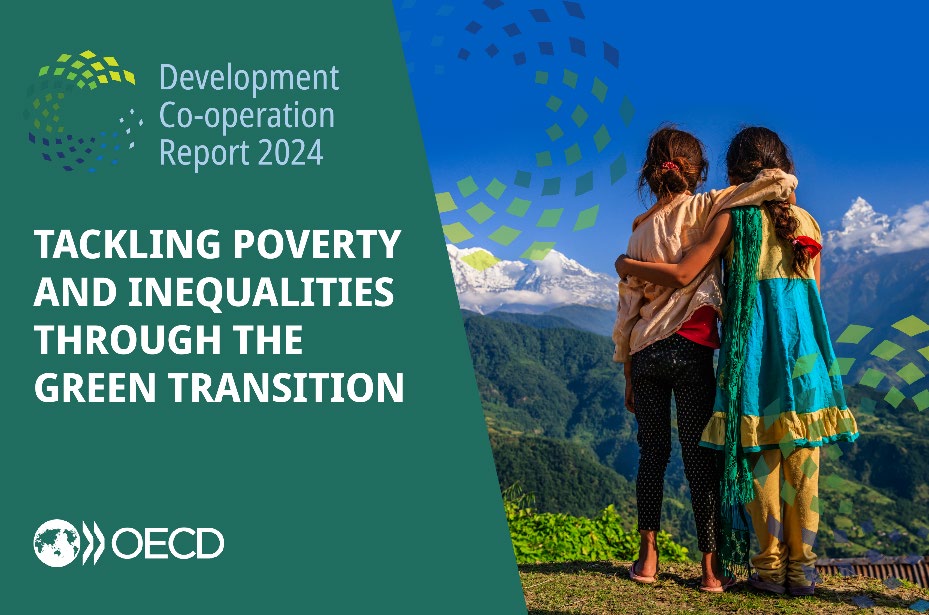News
OECD releases 2024 Development Co-operation Report with two chapters from UNU-WIDER
UNU-WIDER contributed two critical chapters to the OECD Development Co-operation Report 2024: Tackling Poverty and Inequalities through the Green Transition (DCR). The report provides new evidence and analysis to the OECD’s Development Assistance Committee (DAC), comprising 32 of the largest official development assistance (ODA) providers in the world. For 60 years, the annual report has informed the international development policy, programming, and international aid financing practices of OECD member countries and policymakers in the Global South.

Paula Narváez Ojeda (centre right), President of the Economic and Social Council, speaks during 'Keeping the SDG Promise: Pathways to Acceleration' at the High-level Political Forum 2024 in New York on 15 July, 2024. At centre left is Deputy Secretary-General of the United Nations Amina Mohammed.
UNU-WIDER’s chapters summarize the institute’s latest research on how to support sustainable economic development that reduces poverty and inequalities in the Global South. The research covered focuses on improving the fiscal space of Global South governments and their ability to make critical public investments, generating domestic revenues, addressing labour market failures and the needs of informal workers, improving social protection especially for vulnerable populations, and ensuring economic growth is inclusive and equitable.
UNU-WIDER’s contributions include The shifting and increased complexity of global poverty and inequalities and Proven policies that end extreme poverty and reduce inequalities. Together, these chapters communicate to the development community a broad swath of new research findings and key inferences from UNU-WIDER’s most recent 5-year work programme—Transforming economies, states, and societies.

The 2024 Development Co-operation Report was launched during the 2024 United Nations High-level Political Forum on Sustainable Development, held 8–17 July in New York City, USA. The report aims to jumpstart global action on poverty and inequality reduction to recover lost progress towards the Sustainable Development Goals in time for the 2030 deadline. It focuses on how development co-operation actors can step up action on poverty and inequalities reduction amid green transitions, underscoring the message that poverty, inequality, and climate change are interconnected crises that require urgent, coordinated action.
Recent crises, reconfigured foreign aid priorities, and global economic conditions have derailed 30 years of progress in eradicating poverty, and the world’s poorest people are disproportionately bearing the brunt of climate catastrophes.
To address this problem, the report urges development co-operation providers to support a just green transition that benefits the poorest and most vulnerable by 1) raising ambitions on reducing poverty and inequalities; 2) increasing development and green finance; and 3) ensuring human rights and environmental and social standards in green transitions.
A recent WIDER Working Paper, which offers background for the report, provides new estimates on the cost to end global poverty. According to these global estimates, it would cost USD 70 billion to end extreme poverty and USD 325 billion to end absolute monetary poverty annually by 2030. According to the authors, ‘This may sound like a lot but is only 0.1% and 0.6% of the gross national income (GNI) of the OECD’s high-income countries (HICs), lower than the commitments made by OECD countries to deliver 0.7% of GNI in development cooperation finance per annum’.
Less than one in every 10 US dollars, or 9.5% of bilateral official development assistance (ODA) from Development Assistance Committee members, went to grants for poverty reduction in 2022, down from 11.5% the previous year. Much of this aid has shifted to basic health services since the COVID-19 pandemic. A relatively small share of funding goes to proven solutions, such as enhancing social protection, supporting justice systems, and strengthening tax systems—all crucial for reducing poverty and inequalities.
To find out more, download and read the OECD’s Development Co-operation Report 2024.
 Join the network
Join the network